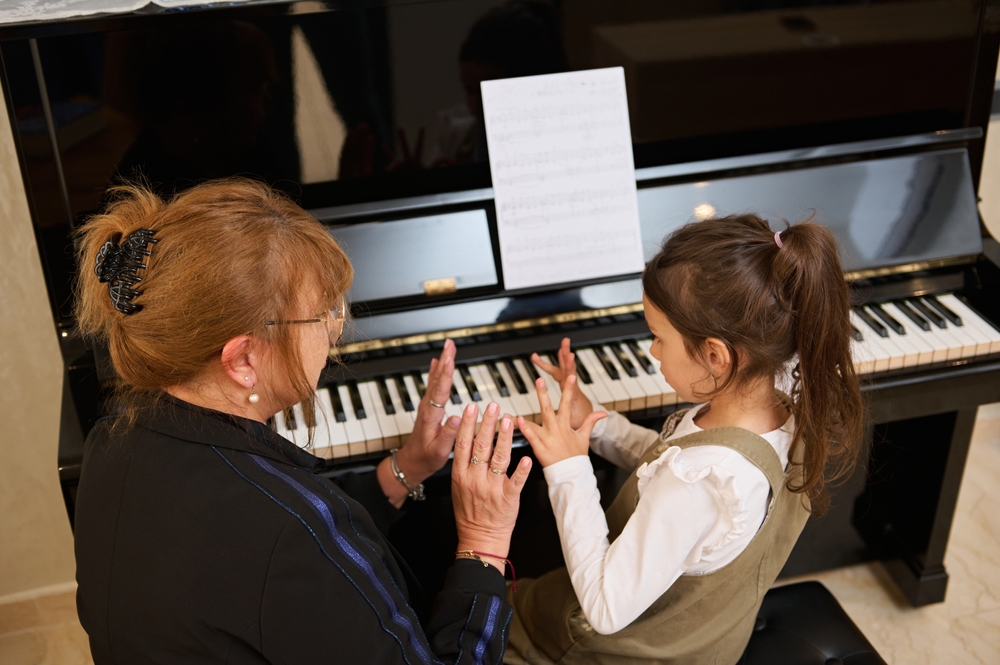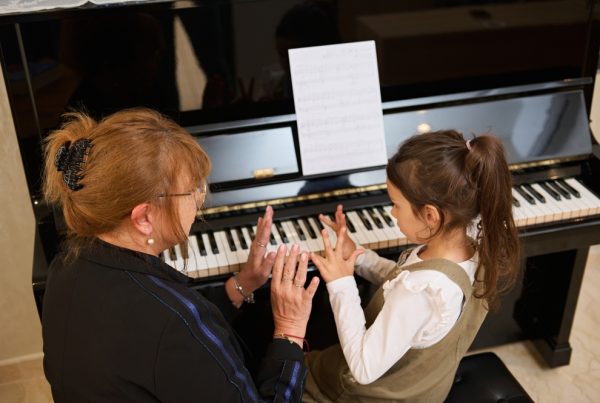If you’ve been considering piano lessons at home for kids but aren’t sure where to start, this guide is for you. In this blog post, we’ll explore all the important details about in-home piano lessons for kids, including the benefits of private piano lessons for children, tips for finding the right mobile piano lessons for kids, and an in-depth look at Volz Piano’s complete Volz Piano Method for Kids. You’ll also discover how Volz Piano serves both Salt Lake County and Utah County with convenient piano lessons for children at home. Whether you’re seeking a private piano teacher for kids at home or want to know more about personalized piano lessons for children at home, keep reading. We’ll walk you through everything you need to know, answer common questions, and link you to relevant sections for easy navigation.
TABLE OF CONTENTS
- What Are Piano Lessons at Home for Kids?
- Why Choose At-Home Piano Lessons for Children
- Volz Piano: Your Local Option in Salt Lake County and Utah County
- An Introduction to the Volz Piano Method for Kids
- How In-Home Piano Lessons Work
- Setting Realistic Goals and Expectations
- FAQs
What Are Piano Lessons at Home for Kids?
Piano lessons at home for kids involve hiring piano teachers that come to your home for kids, eliminating the need to drive to a music studio or lesson center. These home piano lessons for children offer a flexible piano lessons at home experience that can be tailored to your child’s unique learning pace. Parents looking for personalized music lessons for children often find this option highly convenient.
- Primary Keyword Mention: piano lessons at home for kids
- Relevant Secondary Keywords:
- in-home piano lessons for kids
- private piano lessons for children
- kids piano instruction at home
- Relevant Long Tail Keywords:
- beginner piano lessons for kids at home
- piano teachers that come to your home for kids
- Relevant LSI Keywords:
- home-based piano classes for children
- kids piano tutor at home
Why Choose At-Home Piano Lessons for Children
Convenience and Comfort
Many parents opt for a personal piano tutor for kids at home because it simplifies scheduling and reduces travel time. Mobile piano teacher for kids lessons can also make children feel more comfortable practicing in a familiar environment.
Personalized Learning
One-on-one piano lessons for children and piano lessons for young beginners at home allow teachers to focus on each child’s specific needs. The flexible piano lessons at home arrangement means the pace and style of instruction can be adapted to the student’s progress.
Improved Practice Habits
When kids don’t have to commute for lessons, they can more readily apply new concepts on their home piano or keyboard. This convenience often leads to more consistent practice habits, which is crucial for building strong musical skills.
- Relevant Secondary Keywords:
- mobile piano lessons for kids
- personal piano tutor for kids
- Relevant Long Tail Keywords:
- in-home piano lessons for kids near me
- Relevant LSI Keywords:
- convenient piano lessons for kids
- flexible piano lessons at home
Volz Piano: Your Local Option in Salt Lake County and Utah County
Choosing a local option is essential for families who want a consistent, high-quality program. Volz Piano stands out by offering a complete Volz piano method for kids, as well as “Piano Teachers that Drive to You,” making it simple to schedule home-based piano classes for children.
Serving Salt Lake County and Utah County
Volz Piano operates in both Salt Lake County and Utah County, making piano lessons at home for kids in Salt Lake County and piano lessons for children at home in Utah County easily accessible. With their mobile piano lessons for kids, parents in these areas enjoy top-notch instruction and hassle-free scheduling.
- Relevant Long Tail Keywords:
- piano lessons at home for kids in Salt Lake County
- piano lessons for children at home in Utah County
An Introduction to the Volz Piano Method for Kids
The Volz piano method for kids is designed for child-friendly piano instruction at home, emphasizing skill-building and instilling essential music theory and technique. Each lesson builds upon the last, ensuring a structured progression suited to every child’s pace.
Key Features
- Comprehensive Curriculum: Covers everything from basic note reading to more advanced techniques, making it ideal for piano lessons for young beginners at home.
- Interactive Activities: Engaging games and exercises keep young learners motivated and reinforce theoretical concepts.
- Adaptable Techniques: Ensures personalized piano lessons for children, aligning with each child’s distinct learning style.
Why the Volz Piano Method Stands Out
- Child-Centered Approach: Lessons are designed for a child’s developmental stage.
- Professional Instructors: Every personal piano tutor for kids at Volz Piano undergoes extensive training, guaranteeing consistent instructional quality.
- Proven Success: Parents report swift improvement and deeper musical engagement.
- Relevant Secondary Keyword:
- kids piano instruction at home
- Relevant LSI Keywords:
- personalized music lessons for children
- child-friendly piano instruction at home
How In-Home Piano Lessons Work
Scheduling
Setting up in-home piano lessons for kids is simple. With Volz Piano, families in Salt Lake County and Utah County can choose weekly slots that fit their schedules. Thanks to the “Piano Teachers that Drive to You” model, lessons are flexible and convenient.
The Lesson Structure
- Warm-Up: Simple finger exercises or scale drills.
- Review: Quick overview of prior week’s assignments.
- New Material: Introduction of new pieces or concepts.
- Feedback and Practice Tips: Guidance to improve at-home practice sessions.
Progress Tracking
- Regular Assessments: Evaluate skill development, adjusting lesson plans as needed.
- Parent Updates: Receive frequent reports on your child’s progress and how best to support their practice at home.
- Relevant Secondary Keywords:
- home piano lessons for children
- Relevant Long Tail Keywords:
- private piano teacher for kids at home
- Relevant LSI Keywords:
- mobile piano teacher for kids
Setting Realistic Goals and Expectations
Short-Term Goals
- Finger Dexterity: Introduce scales and finger exercises.
- Rhythm and Note Recognition: Teach basic note reading on the staff and simple rhythmic patterns.
Long-Term Goals
- Playing Full Pieces: After a few months, children should be comfortable performing simple compositions.
- Performance Opportunities: As they advance, kids can take part in recitals or family performances.
Maintaining Motivation
Frequent praise, fun activities, and small challenges keep children engaged. Progress varies with each learner, so patience and consistent practice are key to successful piano lessons at home for kids.
- Relevant Secondary Keyword:
- Relevant LSI Keyword:
FAQs
A1: If your child shows an interest in music, can focus for short durations, and follows basic instructions, they’re likely ready. Volz Piano specializes in piano lessons for young beginners at home, tailoring lessons to different developmental stages.
A2: Costs can vary. However, many parents find the convenience and time saved on commuting worth the investment. Plus, mobile piano lessons for kids free up your schedule for other activities.
A3: A tuned acoustic piano or a digital keyboard with weighted keys is recommended. Your mobile piano teacher for kids can provide guidance on the ideal setup.
A4: While it’s excellent for newcomers, the curriculum adapts to more advanced levels. Discuss your child’s current skills with Volz Piano to find the best entry point.
A5: Volz Piano offers periodic progress updates and milestones. This helps parents stay informed about their child’s achievements in piano lessons at home for kids.



